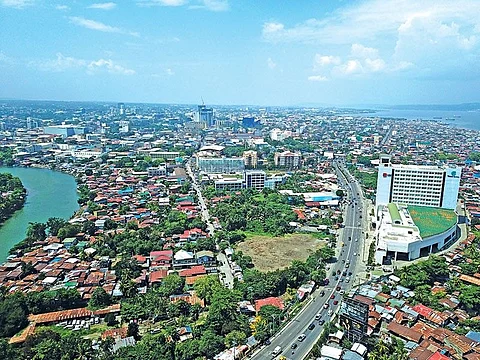

PHILIPPINE economy recorded its slowest growth rate since 2015 as it slowed down to 5.6 percent in the first quarter of 2019.
Socioeconomic Planning Secretary Ernesto M. Pernia in a statement said the slow growth may be due to the government operating in a re-enacted budget early in the year. He said this “sharply” slowed the pace of the country's economic growth.
“The budget impassed in the Congress during the year’s first three months had set off a spending cutback, which, in turn, stifled economic activity,” Finance Secretary Carlos Dominguez III said.
Pernia, for his part, said the economy “should have grown by as much as 6.6 percent this first quarter” if the government were operating under the 2019 fiscal program.
“Comparing the 2018 and 2019 performance of the government sector, we see that Government Final Consumption Expenditure weakened, growing only by 7.4 percent versus 13.6 percent in 2018; public construction contracted by 8.6 percent,” Pernia said.
Despite the slower growth at the beginning of the year, Pernia said the government is optimistic that it may be able to hit its growth target of 6 percent to 7 percent. However, he pointed out that the government will need to “expand by an average of 6.1 percent over the next three quarters.”
“This is still achievable given the current performance of the private sector and if the government sector is able to jumpstart and speed up the implementation of its new programs and projects,” Pernia said.
He said there is a need for the government to quickly implement and disburse the fiscal program.
“The Department of Budget and Management needs to issue the Budget Circular for the General Appropriations Act as soon as possible...If the payment period and budget validity are not extended, government agencies may decide to forgo implementing new programs and projects that are expected to take longer than seven months to complete, inclusive of the procurement process,” Pernia said.
Meanwhile, the Philippine Statistics Authority reported that among the major economic sectors, Services had the fastest growth with 7 percent.
“Industry followed with a growth of 4.4 percent. Agriculture, Hunting, Forestry and Fishing had a growth of 0.8 percent,” PSA said in a statement.
Pernia pointed out that the lackluster growth of the agriculture sector can be attributed to the El Niño phenomenon, which is projected to continue until August of this year.
He said in the industry sector, they noted a slowing down of private construction, “which is expected given the business cycle of the sector.”
“However, if we are able to quickly implement the reforms that reduce the cost of doing business, then the uptick in private construction may happen even sooner,” Pernia said.
He said amendments to the Foreign Investment Act, the Public Service Act, and the Retail Trade Liberalization Act will also encourage investments in industry and services, and boost private construction as there will be greater need for factories and office spaces.
“Fortunately, foreign investments will also be encouraged with our country’s international credit rating upgrade to BBB+, historically the highest for the country,” Pernia said.
Meanwhile, it was noted by Pernia that household spending accelerated by 6.3 percent.
“We expect this to remain robust with a more upbeat consumer sentiment over the quarters ahead and the continued moderation in inflation,” he said.